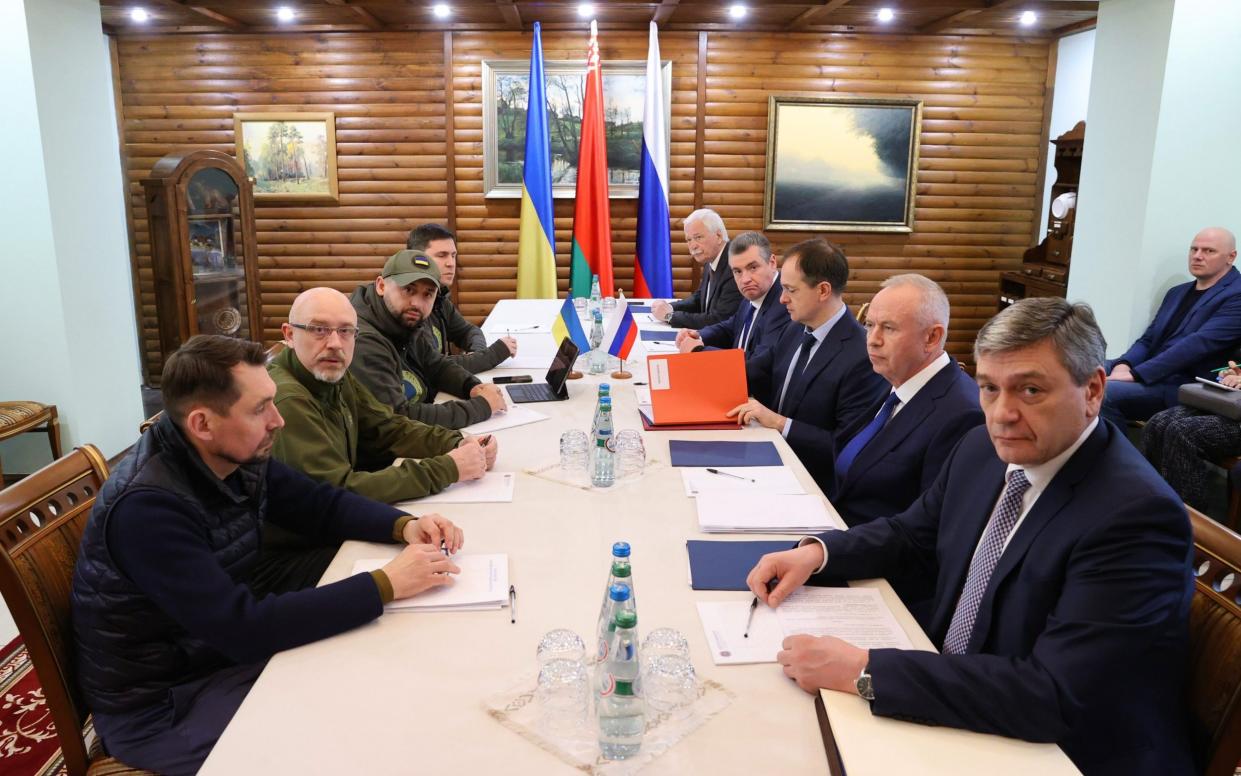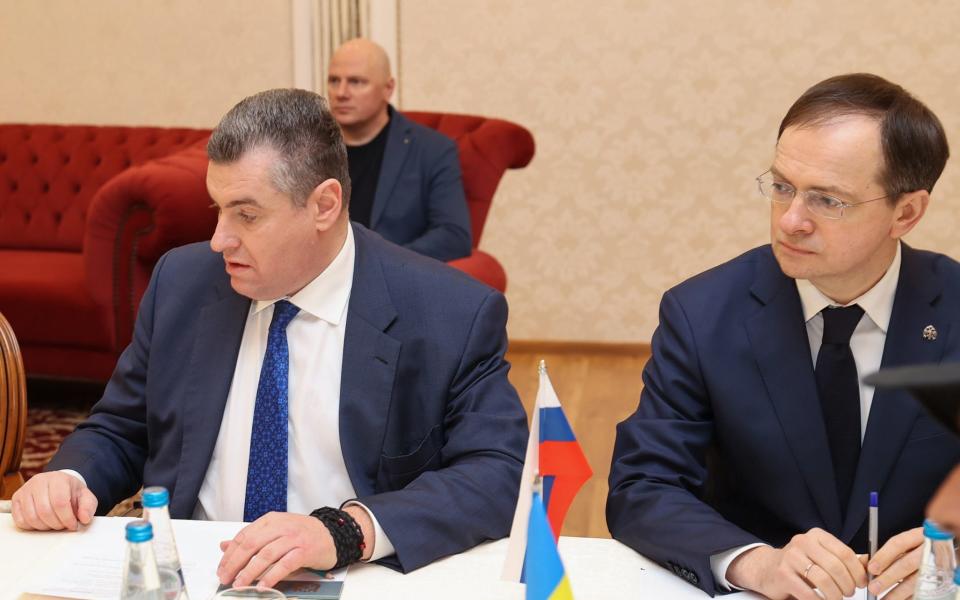Ukrainian peace negotiators ‘unprepared’ for KGB tactics of Russia’s bully boys

- Oops!Something went wrong.Please try again later.
Ukraine's peace negotiators may not be prepared for the belligerent KGB tactics of their Russian counterparts, a senior government adviser has warned.
Luliia Osmolovska, an adviser to the Ukraine government, said Moscow's team was taught to belittle opponents and would not engage constructively in talks with Kyiv until there was a “moment of ripeness”.
She told The Telegraph: “This moment appears when both parties understand the status quo is intolerable for both of them and they can't resolve issues unilaterally without communicating and engaging in cooperation with the other side.
“The Russians still don't feel this sense of ripeness for them, despite the fact that they are obviously underperforming heavily on the battlefield.”
Dmitry Peskov, the Kremlin's spokesman, said on Tuesday that the negotiations were "going a lot slower" than Moscow hoped. Putting the results before a referendum, as Volodymyr Zelensky, the Ukrainian president, has promised, would only "undermine the process", he said.
Ukrainians must ‘keep a poker face’
According to Ms Osmolovska, Russia’s negotiation tactics are based on the Soviet-era diplomacy of Andrei Gromyko, a former foreign affairs minister of the USSR, and KGB practices.
The main aim is to play with an opponent's emotions, to prevent them making rational assessments.
“Russians are well known for these deceitful tactics,” Ms Osmolovska said, warning that Kyiv’s political elites have little experience in engaging with such techniques.
“When the Russians are trying to behave like that, getting very personal, you just have to keep a poker face and continue being rational.
“But this is not something which is known on a wider scale to a Ukrainian audience or to Ukrainian political elites, because they haven't been engaged in negotiations with Russians.”
She said Leonid Slutsky, one of the Russian delegates, is well known for his “harsh”, “offensive” and “humiliating” opinions on Ukraine’s society and political leadership.
He is a “toxic figure” that shows Moscow is “not seriously interested in negotiations” at this time, preferring to adopt a “strategy of avoidance”.

She added: “They're trying to present the case that they are quite cooperative, looking for some way out of the existing conflict and looking for solutions. But this is just an image. On substantive elements, we don't see anything of this kind.
“All of them are rather plain and unimpressive figures.”
Ukrainian society is confident of military victory, so will find any suggestion of border changes as part of any peace deal extremely hard to accept.
“This is something that the Ukrainian negotiation team is not ready to consider and compromise on at all,” Ms Osmolovska said.
Moscow will aim to “break the solidarity and unity of Ukrainian society” through proposing “ambiguous commitments”.
“Time plays in our hands," said Ms Osmolovska.
“We suffer huge, horrific losses of human life with the devastation of our cities and towns. But Ukrainian people are ready to sustain this because they fight. They see light at the end of the tunnel.”
Dmitry Grozoubinski, director of Explain Trade, a Geneva-based negotiation consultancy, said any deal Mr Zelensky agreed would have to be acceptable to the Ukrainian people.
“The Ukrainian public, 93 per cent of whom believe Ukraine will win the war, is unlikely to accept a ceasefire bought at the cost of territorial concessions or demilitarisation.”
He said if Mr Zelensky “tried to make one, they'd likely remove him”.

